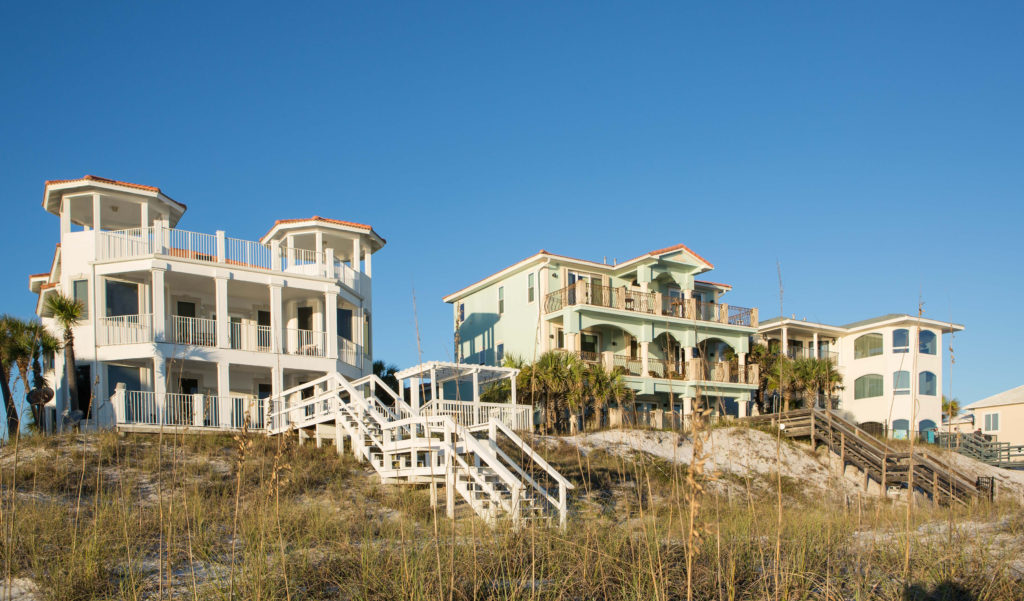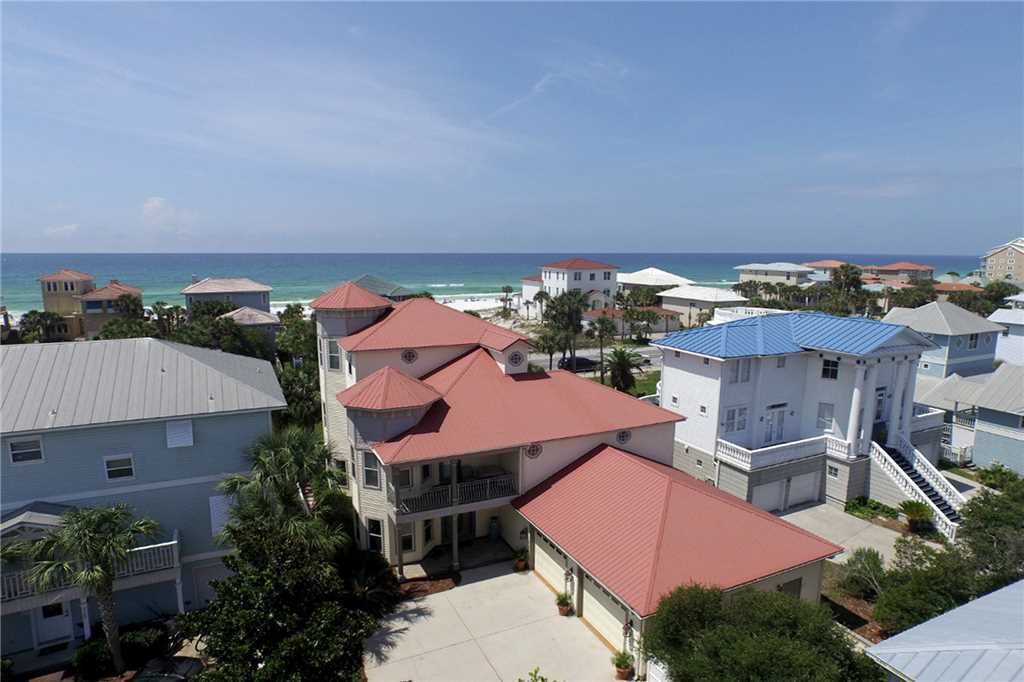Vacation Rental Property Insurance to Properly Protect Landlords
Is Homeowners or Rental Landlord Insurance the Same as Vacation Rental Property Insurance?
The long and the short answer to that question is no, vacation rental property insurance is a very specific policy and Riles and Allen Insurance Agents can help you understand it here. The first and most important thing to understand about vacation rental property insurance is you need a real live agent, one like those available to help you free of extra charge at Riles and Allen Insurance Agency.
Most vacation rental owners carry (mistakenly) either a homeowners or landlord insurance policy. Here is the problem, both of those types of policies have significant coverage gaps that can leave you without any protection in many cases of liability and property loss in the week to week world of vacation rentals, thus the need for specific vacation property rental insurance policies.
Typically, a vacation rental property insurance policy must cover many conditions that a regular home owner need not worry about. Vacation rental property can have triple uses throughout the year, mostly being occupied by paying rental guests, some for a week some for longer. Then there are the times when you and your family may stay in the property and live in it for your vacation or an extended period of time. Finally, the property may set unoccupied for periods of time, sometimes long periods of time. A vacation rental property insurance policy is designed to cover all three possibilities and more.
Some insurance carriers will offer a rider that allows for “occasional” rentals and offer limited property and liability coverage. The problem is limited coverage, and most vacation rental properties have guests “regularly” not “occasionally”, so virtually any claim could be denied and is subject to carrier interpretation. If you regularly rent your vacation property, then you need the type of business insurance commonly referred to as vacation rental property insurance.
If you see a deal on-line that indicates your property would be covered for short-term rental activity, does this necessarily mean that the policy is good for a vacation rental property?
Insurance is a contract that you pay a premium for, and in that contract, it will clearly state what’s covered and what’s not covered. Just because an on-line website tells you there is coverage, doesn’t mean this is 100% correct. You need to see where this coverage exists in the actual language of the contract. We advise that you get the below question answered in writing:
“If I regularly entrust my property/home to a paying vacation rental guest for a period of fewer than 30 days, and that guest damages, steals or is injured on my property, do I have property and liability coverage?”
Do you need two separate policies; one for when you are renting a property, and one for when the property is sitting idle, and possibly another policy for when you may be staying in the property yourself?
No, the Proper vacation rental property Insurance policy is comprehensive; there is full coverage in place whether it’s being rented, vacant, and/or being used by the owner or their non-paying guests. It is designed for vacation rentals that are either second homes or that double as primary residences. It entirely replaces a landlord or homeowners’ policy. If you carry the Proper policy, there would be no reason to keep your other insurance in place as you would be “double” insured if you did.
How Does Vacation Rental Property Insurance Work, and Why is it Best to have an Actual Agent?
The surest way to safeguard an investment in a vacation home is through vacation rental property insurance. With the Florida vacation season always only a stone’s throw away and the demand for vacation rentals building up more every year, now is the time investors should be begin preparing. One of the easiest ways to do this is to insure having the proper vacation property rental insurance by calling Riles and Allen Insurance Agency and speaking to an actual live agent. You’re not only taking the necessary steps to mitigate financial risks, but you’ll give yourself peace of mind during the busy vacation season having a trusted partner in the insurance business to call when questions arise. Don’t place your investment at risk; get vacation property rental insurance to safeguard your investment now.
“The right insurance coverage is key because regardless of how good the contract is, if the person doesn’t have the money [to cover damages they caused], they don’t have the money,” says William L. Whitacre, an attorney in Orlando FL, who represents homeowners who rent their vacation homes and property managers of rentals. As a recognized expert in vacation rental property and legal problems that can arise from owning them, it’s hard to argue with his sentiment.
The practice of renting out a vacation home should coincide with vacation rental property insurance; having one without the other is an unnecessary risk. Vacation rental property insurance will cover many of the same things your homeowners insurance does, but it offers some additional protection. Riles and Allen Insurance Agency think informed clients are our best customers, so we’ll outline the three steps to insuring your vacation rental property in order to better preserve the long-term future of your investment.
An Agent Needs to Understand Your Property’s Specific Needs in Order to Provide the Correct Vacation Rental Property Insurance Policy.
When it comes to vacation rental property insurance, there are generally two scenarios property owners need to understand. If the property is used primarily for short-term rentals — less than 30 days — you can obtain a special endorsement from your insurance company (you’ll need to contact your insurance directly to see if you qualify if you do not go through a general agent like Riles and Allen).
On the other hand, property owners will need to secure a separate business insurance policy for short-term vacation rentals that occur on a more frequent basis, specifically a hotel or a bed and breakfast policy. A standard homeowners insurance policy will not provide any coverage for business activities, and it’s important to note that insurance policies vary from insurer to insurer and from state to state. Florida can be tricky, so make sure to use a local agent if you are in Florida.
The three primary aspects homeowners will need to worry about when it comes to vacation rental property insurance are liability, building and contents, and building income. Let’s take a look at what that means exactly:
- Liability: Liability insurance protects you from the single biggest risk when renting your property: your guest. The risks of liabilities imposed by lawsuits and similar claims, as well as property damages will be covered depending on your insurance policy. In most cases, liability insurance will cover you even if you’re found legally responsible for an accident that causes injury or damages to another property.
- Building and Contents: The next biggest risk you have is the actual property itself. If your renters happen to start a fire or burn your property down, this aspect of your insurance policy will ensure your home and the contents of it are replaced at no cost to you or no cost beyond a deductible.
- Building Income: The third exposure you have as a vacation rental owner is business income. After all, your rental property is a business which generates income, therefore, you’ll need to protect the income your business makes.
With the looming threat of these three things; why wouldn’t you consider specific vacation property rental insurance designed to cover these aspects of risk?
Let Riles and Allen Insurance agency Brake this Process Down Into 3 Simple Steps:
3 Steps to Insuring Vacation Property with Vacation Property Rental Insurance:
- Gather All Information: When beginning the process of obtaining vacation rental property insurance, it’s critical you gather all the necessary information before contacting an agent. If your rental provides additional recreational items such as bicycles, quads, bikes, swimming pool, jet sky etc, you’ll want your agent to check to see if your liability insurance extends to cover each of these items. In addition, you’ll want to find out what support you’ll be given if something does go wrong and need a claim. Make sure to speak with your insurance company to learn if you’ll be dealing directly with them if the policy was bought from an on-line source. By gathering all the information, you need beforehand, you’ll not only take the necessary steps to insure your investment is properly secure, but it’ll allow you to reconsider providing certain items that could exposure you to personal risk. A good experienced agency like Riles and Allen can make all this a lot easier during the process of building a policy and to help if the needs arises for a claim to be filed.
- Choose the Correct Policy: The next step to insuring your vacation rental is choosing your policy and the type that fits your needs. Each vacation rental insurance policy is classified based on how extensive the coverage is, so it’s important you call and talk to a representative to ensure you’re getting the right policy for you and your rental. In terms of pricing, property owners should be careful about choosing insurance based on price. Often times, opting for the lowest price policy will inadequately insure your vacation rental and leave you vulnerable if something does go wrong or bad things were to occur. Make sure to choose a comprehensive policy that makes sense to you. It is advisable to deal with a professional reputable agency like Riles and Allen, their help can be invaluable.
- Finalize Paperwork: This is where you activate the policy. It’s critical you finalize all insurance paperwork before renting your property to ensure the proper steps and paperwork has been filed and are accepted and in force. Make sure you’ve received copies of your insurance policy information before handing over the keys of your property to a vacation renter, as you’ll want to have this info on file in case anything goes awry. For property owners looking to rent out their vacation rental this year, choosing an insurance carrier and policy shouldn’t be underestimated. Vacation rental property insurance is by far and large the biggest component to safeguarding your investment for the long-term. This process should be considered in the first stages of the renting process. Are you entertaining the idea of renting your investment property out?
If you are considering owning a rental property, particularly of the vacation variety, Riles and Allen Insurance Agency strongly advise you to consider vacation rental property insurance.

Call Riles and Allen Insurance Today!!!!





